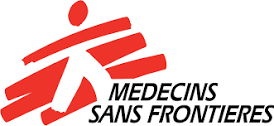Cyclone in Mayotte: “The State's response is much more about safety than health”
As another storm hits Mayotte a month after Cyclone Chido devastated the archipelago, Matthieu Chantrelle, Deputy Program Manager for MSF, takes stock of the French state relief effort and deplores the abandonment of slum dwellers, who have been left without water, food or medical care since then.
What is the current situation in Mayotte and what are the needs?
While the north of the island of Grande-Terre was particularly hard hit by cyclone Chido, this time it's the south of the island that has experienced the most violent rainfall and flooding. Our teams, who have been present in the north for the past month to develop medical activities and access to water and sanitation, are now returning to assess the needs in the south.
All the inhabitants of the archipelago have been severely affected by this disaster. However, we are paying particular attention to shantytown dwellers, not only because of the precariousness of their original situation, but also because they are not considered at all in the aid that the French government is providing in dribs and drabs. Around 100,000 people are said to live in shantytowns, areas where dwellings have been completely destroyed, leaving vast expanses of sheet metal and debris that have not been cleared away. This creates risks of injury, obstructs waterways, increases the risk of flooding and water- and sanitation-related illnesses. What's more, while a third of Mayotte's population already had no access to drinking water before the cyclone hit, the situation has deteriorated further in the shantytowns following the rupture of pipes and tanks in the formal and informal water networks. Finally, there is a crying lack of access to food, a need that the inhabitants constantly share with us.
The people living in the slums are tired and shocked. According to the national public health agency, by the end of December 2024, half of all homes housed people suffering from psychological disorders linked to the cyclone's passage. Yet, under the pretext that these places are mostly inhabited by undocumented foreigners, no help is reaching them.
What exactly is access to food for people living in shantytowns?
For the past month, our teams have been visiting several shantytowns on the island of Grande Terre on a daily basis. Right from the start, access to food was the main need expressed by the inhabitants. Food crops have been destroyed and nothing will grow again for several months, livestock have been lost, as have food stocks. Without a financial mattress and with their sources of income severely reduced, if not completely cut off, slum dwellers are particularly hard hit by the lack of food. Some tell us that they have gone from eating three meals a day to just one. Whereas their usual diet used to consist of rice and fish, they are increasingly resorting to simple wheat porridge or edible plants.
On December 24, the representative of the French State in Mayotte declared: “A life is a life. Access to food and water is not conditional and must reach everyone living in Mayotte”. Virtually no food distribution took place in the shantytowns. When they did, as in Vahibé where MSF runs mobile clinics, the quantities were minimal and unsuitable: one
1.5-liter bottle of water and a 500g packet of pasta per family. Moreover, these distributions are organized in a disparate way, sometimes based on people's registration, which discourages those who are in an irregular situation, and slum dwellers are not warned in advance.
A week ago, our teams began screening all the patients they see for malnutrition, to gain a better understanding of the situation.
In the face of the worst cyclone to hit the archipelago in sixty years, it is indecent for the authorities to exclude a whole section of the population from the emergency response, and for no aid to be provided in the shantytowns apart from that provided by associations such as MSF.
Since the cyclone hit, a lot of attention has been focused on undocumented migrants. How does this play out locally?
Migrant people living in the archipelago were immediately instrumentalized. Instead of being recognized and helped, like any other victims of natural disasters, they were stigmatized and excluded. Announcements multiplied at the highest level of government, prohibiting the reconstruction of shantytowns, calling into question the right to land, and stepping up surveillance, arrests and deportation measures. At the same time, these people - who were already living in very precarious conditions - have no access to aid, and their movements - to seek medical care, buy medicines or find food - are complicated or even completely prevented for fear of arrest. At a time when the archipelago is slowing down, police checks, arrests and swift expulsions with no possibility of appeal continue. In this respect, the state's response to the disaster is far more security-oriented than health-oriented. There is no respite.
We observe the consequences of this lack of care in the shantytowns where we work. Around 80% of the people we see for consultations say they have no medical contact other than MSF, because the health centers are too far from the shantytowns, or because they are not being treated for non-emergency reasons. In other cases, it's also because care is not free, and people don't have sufficient resources. In one month, we treated over 3,200 patients, more than half of them with pathologies linked to the cyclone's passage - often wounds or illnesses linked or aggravated by the lack of water, such as gastroenteritis or skin diseases.
We therefore call on the French authorities to respond to this blind spot in the response, and to promote aid activities as close as possible to all the people affected by the disaster in the archipelago.
Hannah Hoexter
